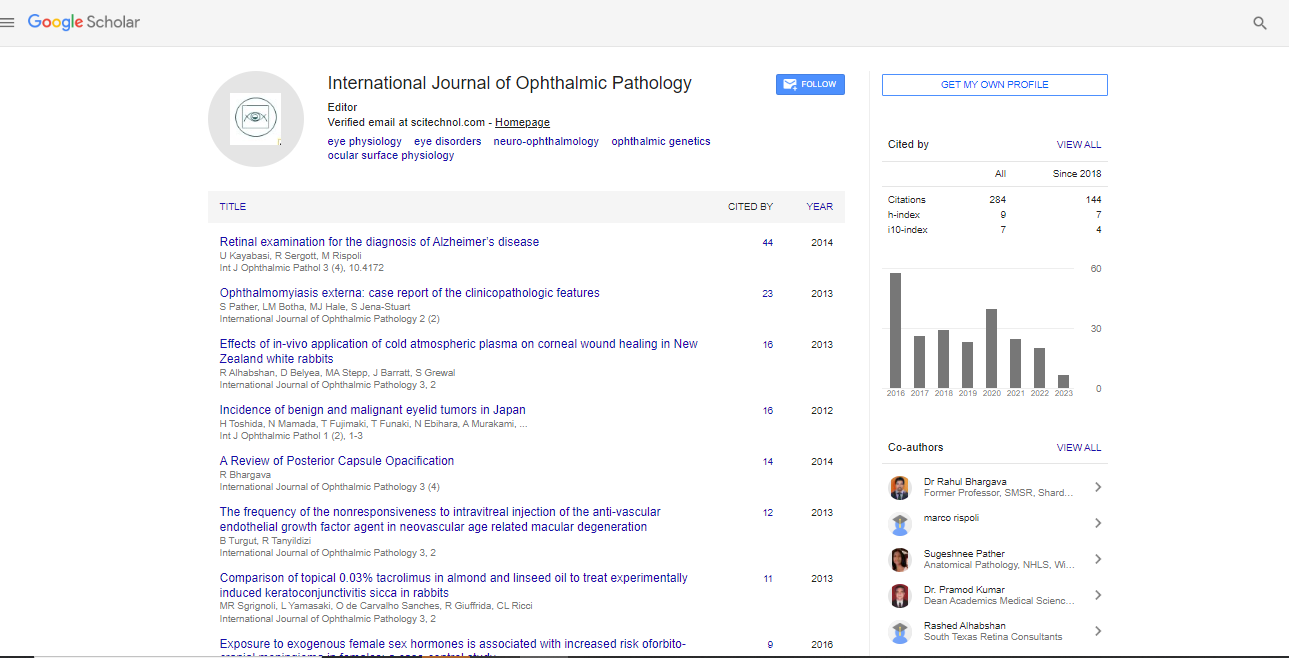Bimanual Surgery in The Management of Complicated Diabetic Vitrectomy
Faisal Fayyad and Omar Fayyad
Jordanian Hospital, Jordan
: Int J Ophthalmic Pathol
Abstract
Key points: What is bi-manual surgery? We use both upper ports as active ones i.e. we utilize the upper left port to insert active instruments (like cutters, forceps and scissors). However, we need a light source to substitute for the endo-illuminator. Indications: Proliferative diabetic retinopathy Rhegmatogenous retinal detachment RD complicated with PVR Trauma Dislocated lens/ IOL ROP Advantages: Better surgical control Reduced frequency of instruments change during surgery and less iatrogenic complications Reduce overall time of surgery Difficult cases become more amenable to surgery Minimize need for an assistant Chandelier Lights: My preference is to use a 2 twin lights to eliminate the need to reposition the fiber and minimizes the shadow seen with single-fiber chandelier endo-illumination because the illumination comes from 2 different directions. Advantages of Chandelier: The working distance for light irradiation is important, and holding the light probes as far away from the retina as possible increases safety. The self-retaining nature of chandelier endoilluminators frees up my hand from holding a light probe, allowing true bimanual manipulation during surgery. Conclusion: Bimanual approach is the safest and the most effective approach in the management of complicated diabetic vitrectomies.
Biography
Senior Vitreo-retinal consultant at the Jordanian Hospital in Amman. Fayyad graduated from Rome University (La Sapienza) in 1976, and completed his residency program in ophthalmology at the same university between 1977 and 1981 with honors. He then traveled to Canada and completed a two year fellowship program in clinical Retina, at the department of ophthalmology at Ottawa University. He served at the Jordanian ministry of health hospitals and the King Hussein Medical Center as well as at the Jordan University Hospital.An examiner at the Jordanian Board of Ophthalmology. Fayyad is involved in training ophthalmologists in Vitreoretinal surgery.
 Spanish
Spanish  Chinese
Chinese  Russian
Russian  German
German  French
French  Japanese
Japanese  Portuguese
Portuguese  Hindi
Hindi 